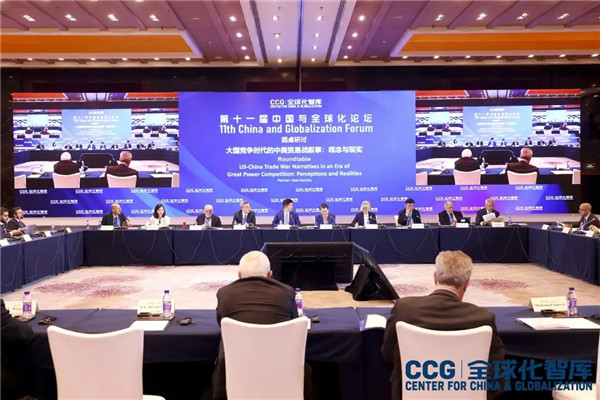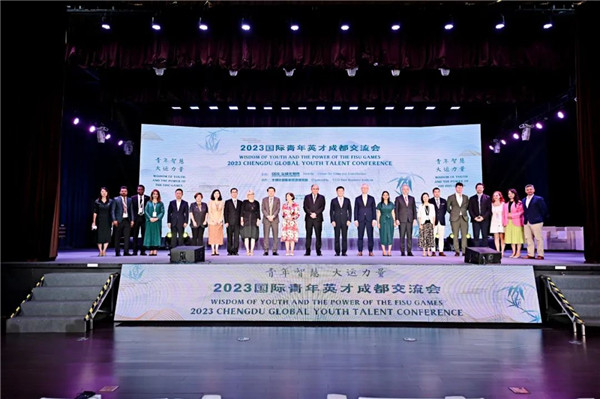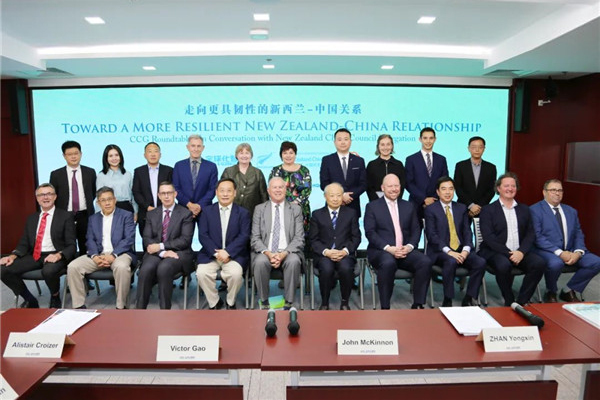New Order of the International Trade System
Roundtable co-hosted by China Center for Globalization (CCG) and the Centre for International Governance Innovation (CIGI)
On April 26, CCG held a roundtable in Beijing with leading Canadian think tank Center for International Governance Innovation (CIGI) to discuss pressing issues for the global trade system. Chaired by CCG President Wang Huiyao and CIGI President Rohinton Medhora, the discussion saw a fruitful exchange of views between experts from CCG, CIGI, and the Embassy of Canada in China. Both sides put forward new ideas to revitalize the world trade system and identified areas for cooperation between the two think tanks.
In his opening remarks, Rohinton Medhora noted that sentiments towards globalization vary greatly across different countries. He emphasized that the cause of the populist backlash that has occurred in some countries is not “too much” globalization, but rather that the process has been unbalanced and often not accompanied by the necessary adjustment mechanisms such as social welfare and re-training programs.
Medhora described the importance of intellectual property (IP) in shaping contemporary trade patterns, in contrast to previous periods that have been driven by goods and then services. He argued that a new analytical toolbox is needed to understand and deal with this IP-driven mode of global trade. Medhora also expressed hope for a new “Bretton Woods moment” that can forge international consensus on relevant issues that have emerged such as data standards and cybersecurity.
Following these points, Wang Huiyao also underscored the importance of data and technology in the current wave of globalization. He suggested that new global governance platforms such as an “I-20” (Internet-20) could help to facilitate international cooperation in this field.
Turning to the current trade frictions between the U.S. and China, CIGI research fellow Alex He highlighted the domestic drivers of Trump’s trade policy, in particular, popular discontent in manufacturing areas.
Anton Malkin, also a CIGI research fellow, shared views on the US Section 301 investigation and raised pertinent questions regarding IP norms and how far trade rules should seek to go.
CCG Senior Fellow He Ning reflected on China’s WTO accession process, drawing on his experience as former Director-General of the Ministry of Commerce (MOFCOM) Department for American and Oceanian Affairs and former Minister for Trade and Economic Affairs at the Chinese Embassy to the U.S. He said that multilateralism has come under opposition due to impact of global competition on domestic labor markets, and that the solution is for affected countries to focus on areas of comparative advantage and continually invest in skills development and upgrading the economy, the same advice given by his American counterpart during the WTO negotiations.
The call to maintain multilateralism was echoed by He Weiwen, CCG Senior Fellow, Director of China Society for WTO Studies, and former Economics and Commerce Counselor at the Chinese Consulate-General in New York and San Francisco. He pointed out that the 301 report fails to present a compelling case against China’s IP practices, given that a recent USCBC business climate report indicates only 6% of American companies operating in China complained about issues such as forced technology transfer. In addition, the relationship between trade and employment as part of Mr. Trump’s old concept of trade does not hold up. The tariff measures stemmed from the view of trade hawks like Peter Navaro and Robert Lighthizer far beyond concerns for IPR or employment, said the CCG expert.
Building on points raised in the discussion, the heads of CCG and CIGI shared views on areas to deepen cooperation between the two think tanks, recognizing the unique contributions that Sino-Canadian synergies can make towards improving the international trade system. Wang Huiyao mapped out several potential areas for combined efforts, included supporting progress towards a China-Canada FTA, bilateral investment, Internet, and e-commerce. He also proposed the idea of a “World Talent Organization” to help coordinate global governance of high-skilled labor migration, citing the rich exchange of talent between China and Canada.
Rohinton Medhora welcomed these suggestions for future cooperation between CCG and CIGI and proposed joint efforts to help educate the public on pertinent issues relating to globalization. He also called to investigate ways to revitalize the international trading system through addressing contemporary issues including climate change via tools such as carbon border tax adjustments. WTO rules, he reaffirmed, should be reformed to reflect economic realities of our day as well as prevent the trading world from breaking into blocks and degenerating into protectionism.





